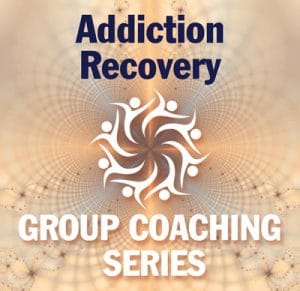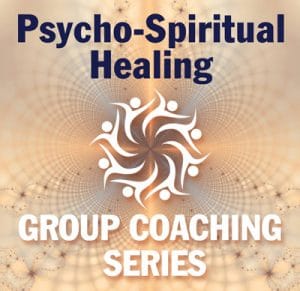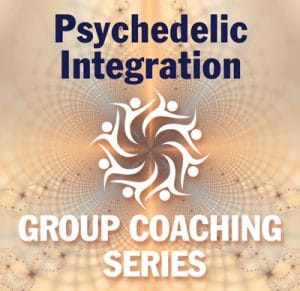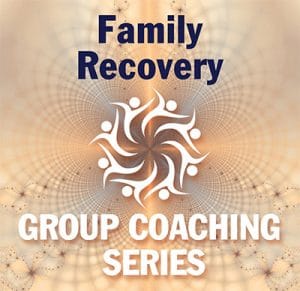
It’s wonderful that psychedelics are finally being recognized for their psychological healing potential, but it is also important to humbly acknowledge that our culture is literally thousands of years behind others in terms of understanding the nuances and best practices of working with these medicines. New insights and potential areas for growth are constantly emerging, and one of the central realizations that people in this field have acknowledged is the importance and general lack of proper pre-care, after-care, and integration assistance for people who choose to undergo psychedelic journeys of healing, recovery, and personal growth.
On the forefront of rising to meet this challenge is Deanne Adamson. Her organization Being True to You began by supporting people undergoing ibogaine addiction treatment, and has expanded over the years to include psychospiritual coaching, psychedelic integration, family coaching, and a broad array of individual and group services for people undertaking transformational journeys of all kinds. As students and graduates of the Being True to You’s Coach Certification Program ourselves, we at Psychedelic Times have the utmost respect for Deanne’s pioneering work in this field, and have partnered with Being True to You to offer a series of group coaching pods starting June 1st. Because psychedelic group coaching is still a very new kind of service, we spoke with Deanne to help demystify what these pods are like, who they are meant to help, and what participants can expect when signing up.
Thank you for speaking with us again Deanne. Our group coaching program is fast approaching, and we are very excited about it. Can you walk us through what a group coaching program entails?
We are very excited too! Starting June 1st we have four different pods that we are offering: Addiction Recovery for people going through the addiction recovery process, Psychedelic Integration for people wanting to better integrate plant medicine journeys, Psycho-Spiritual Healing for people seeking psychospiritual growth which could also include non-psychedelic modalities like vipassana retreats or yoga retreats, and then the fourth is Family Support Groups for the family members of any of these pods. What we do on our end is group people together according to what their focus is, and then we assign two hosts that specialize in those particular areas for that group, typically a male and a female, but depending on who will be the best specialists for that group.
The first session is specifically designed for introductions and intention setting. We help everyone to be really clear about their goals, needs, and challenges- what is important to them, what they need to work on, and how they can map the journey from where they are to where they want to be. From there we draw a parallel between all the members in the group so that everyone has their individual goals and collective goals clarified. Every week after that, the co-hosts will choose a training module that is specifically designed to help inform and empower the group members. After those topics are covered, we then go into group discussion so that each person can be heard and collectively the discussion can flow on its own. There will be some structure in place to make sure the talks do not become derailed, but the conversations arise organically so that there is no ceiling to what can be accomplished or discussed in that moment.
People should know that this dialogue is designed to help bring out people’s fears, shortcomings, doubts, and blind spots, and part of group coaching is stepping up to the plate to be challenged. We have members mirror each other so that we are extracting out of a person the thing that’s blocking them from what they want. Everybody is being vulnerable, so it’s a safe place to show the layers that are covering up your true self. These egoic layers and conditions are like an onion that cover up your true self, so we are peeling back the layers, the facade, the conditioning and defenses so that we can get down to the core.
What in particular about a group dynamic offers an advantage over an individual coaching scenario?
When you see other people being vulnerable and talking about sensitive areas, it gives permission to explore those areas yourself. A lot of people don’t have that in everyday life. It also grants you new perspectives and exposes you to ideas that you might not have considered. Every time someone shares, another group member will hear what they need to hear out of that story. So if I am sharing with the group my experience of getting out of depression let’s say, and the things I discovered about myself, each person in the group is going to hear something different that relates to them. There’s a space created for authenticity and vulnerability when everyone is being vulnerable together, and people are seeing that they are not alone in their journey of the shadow side and that coming into their true self is the point and is possible. Group members are able to learn from each other’s experiences of trial and error.
It is also empowering being able to talk with your peers rather than an authority figure. There’s a sense of ‘I’m human, you’re human, and we’re just having a discussion about our human experience’. People will naturally help each other, and when you are in a position where you can mentor and encourage others, that satisfies a very deep need within yourself to make a difference in other people’s lives. As we are coaching other people, we are coaching ourselves at the same time. It’s another way to integrate what we are learning, because we are hearing it, talking about it, and hearing others talk about it, so in some ways it’s exponentially more powerful due to the multiple angles you can deconstruct a particular topic.
What kind of people is a program like this designed for?
A good candidate for group coaching would be someone who wants to transform their life and recognizes that they are responsible and accountable for transforming their own life. People should be open-minded, willing to learn, and willing to be vulnerable and brave in facing their own shortcomings. We also want people who are able to be respectful in a group situation and add to the quality of the conversation rather than taking away from the quality of group-care, which we do training on. People do not have to be perfect because we will do orientation on how to get the most effectiveness out of group coaching. Also, people need to speak English for our classes right now, have their own cell phone for the group calls, and ideally have access to a computer for additional ways to interact with the class.
People who would not be good candidates for group coaching would be those who are in such crisis and survival mode that they’re unable to focus on one thing at a time. When your life is crumbling, it’s hard to be in a group situation because you need full-time attention, so there has to be a level of mental clarity and social and emotional intelligence that we expect. Really it all comes down to competence and coachability, which we will provide the training for, but if somebody were distracting the group and taking away from the quality of the group, they wouldn’t be a good fit, and it wouldn’t benefit them either because we don’t want to set someone up for failure. Orientation and preparation for positive group interaction is one of our specialities. And we do screen all of our applicants beforehand, so it is not open to every person that applies.
We are very grateful to Deanne for speaking with us and for the important services that Being True To You provides. To sign up for the Group Coaching program, click one of the links below. You can also learn more about the Group Coaching program by clicking here, or call (650) 690-2088 for more information.














